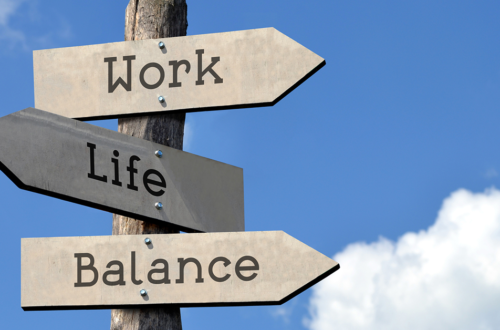
What Trust in Business Actually Looks Like
I used to think trust was a feeling you either had or didn’t. You meet someone, something clicks (or doesn’t), and you go from there. But after more than two decades of working with clients, managing teams, and trying to keep it all together in life and business, I’ve realized trust in business is rarely that simple. It’s not a lightning bolt or a vibe. It’s a pattern. A bunch of small moments that add up over time.
Trust is how I know I can take on a new project without spiraling into “What if this is a disaster?” Trust is how my clients know they can throw a million things at me and I’ll catch what matters. And trust is how I’ve learned to shut out the noise, follow my gut, and not second-guess every decision just because it isn’t what someone else would do.
Here’s what I’ve figured out about building trust, starting with the hardest part.
Trust starts with yourself.
It took me years to realize that every time I said yes to a project that didn’t feel right, or lowered my rates “just this once,” or stayed quiet in a meeting where I should’ve spoken up, I was chipping away at my own trust in myself. I didn’t want to make waves. I wanted to be easy to work with. And I convinced myself that compromising a little here and there was just part of the job.
It wasn’t. And it backfired.
The more I trusted other people’s comfort over my own boundaries, the more out of alignment I felt. And eventually, it showed in my energy, in my work, in how I talked about what I did.
Rebuilding that trust with myself meant doing the uncomfortable things. Saying no. Raising my rates. Creating new offers that felt good to me instead of trying to fit myself into what everyone else was doing. And now, I can spot that feeling faster. When something’s off, I listen. And I act on it.
I’ve seen this play out in parenting, too. My kids trust me more when I’m steady, honest, and not pretending to have it all figured out. And honestly, watching how they respond has helped me trust myself more because they don’t need perfection. They need consistency. Turns out, so do clients.
Trust shows up in the small stuff.
Most people think trust is earned through grand gestures or flawless execution. But what I’ve learned (especially from long-term client relationships) is that it’s the small, consistent things that build real trust.
It’s answering the email when I say I will. Being honest about timelines. Owning a mistake without deflecting. Following through. Saying “I’ll find out” when I don’t have an answer. Setting expectations clearly instead of trying to be everything, everywhere, all at once.
These don’t sound revolutionary, but they matter. They create stability. And in the marketing world, where everything moves fast and everyone’s been burned at least once, stability builds trust, especially in business.
Sometimes trust breaks, and that’s part of it.
I’ve had moments where trust cracked. Projects that went sideways. People who said one thing and did another. And yep, moments where I realized later that I had dropped the ball in ways I didn’t see at the time.
None of that feels good. But it’s also not the end of the story.
I’ve learned that part of being trustworthy is owning when things go wrong and not disappearing. It’s showing up differently next time. It’s giving people (and myself) space to be human. Not every relationship can be repaired, but the ones that can are usually stronger for it.
The kind of work I want is built on trust.
I don’t want to work with people who need to micromanage every move I make. I don’t want to be in a room where I’m expected to prove myself over and over. And I don’t want to feel like I have to do some big performance to be taken seriously.
The best work I’ve ever done happened in spaces where there was mutual trust. Where I could be authentically me, offer an honest opinion, and be heard. Where people knew I had their back, and I knew they had mine.
That’s the goal with trust in business, in life, in every new thing I build.




